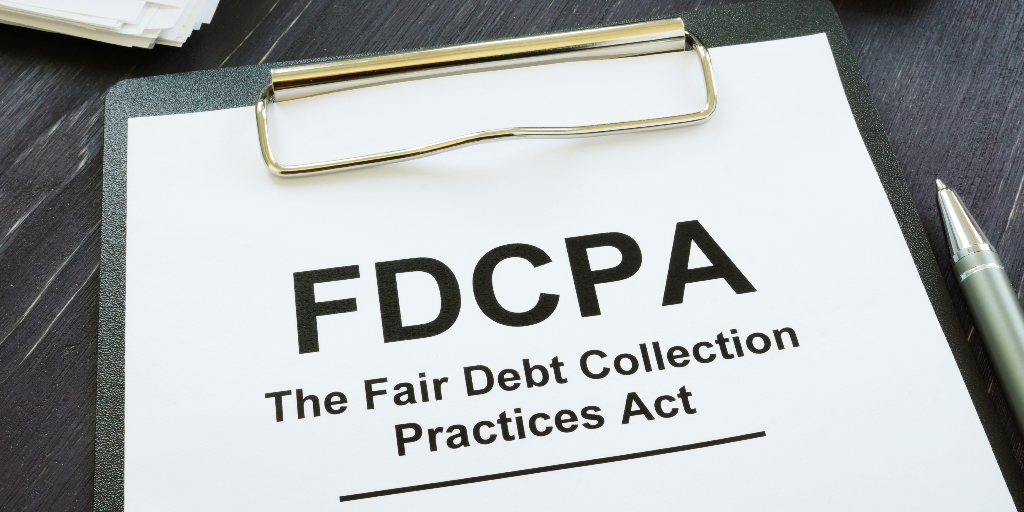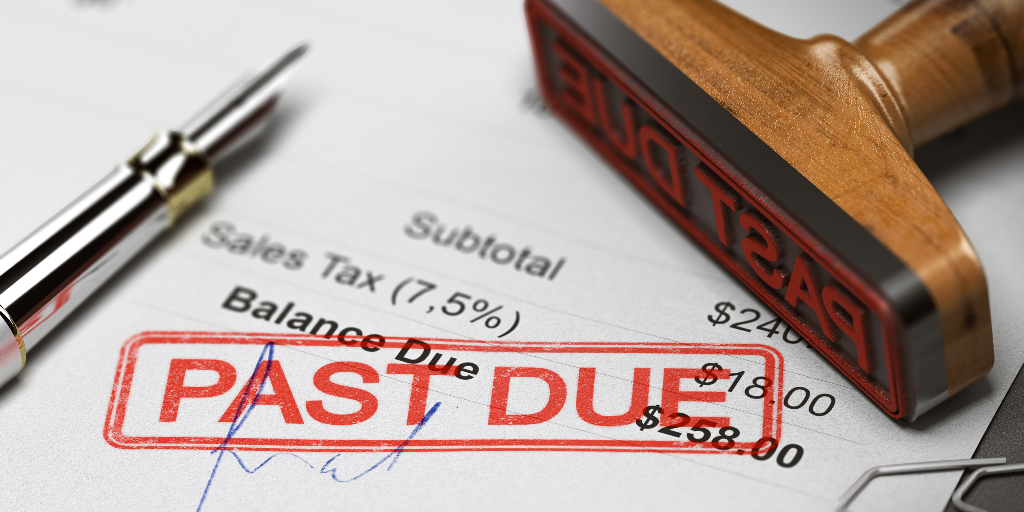3 Little-Known Facts About Collections

- Debt collection agencies buy your debt at a discount.
- You can negotiate a settlement with the debt collection agency.
- If your debt lands in collections, then it will go on your credit report and can lower your credit score.
The words debt collection probably conjure up images of horribly harassing phone calls, fear of your financial future, and shame because your debt landed in collections. But as with anything, financial knowledge is power. The more you know about the debt collector, the easier it will be for you to handle your debt and take control of your life.
What is a Debt Collection Agency?
A debt collection agency is a company that takes unpaid bills, buys them at a discount, and pursues the debtor for a profit. A debtor is an individual or institution that owes a sum of money.
When a debt collection agency buys a debtor's bill, it can be almost any kind of bill, like a medical bill, credit card bill, parking ticket, or utility bill. In addition, an organization can sell its debt to the debt collection agency when they no longer want to pursue it.
When a bill is sent to a debt collection agency, it can severely impact your financial health. Your credit score will suffer, and the delinquency will stay on your credit report for seven years. That’s the same time that a foreclosure stays on your credit report.
The good news is that several protections are in place once your debt has gone to collections. You also obtain negotiation power in reducing your debt or creating a payment plan. Either way, being diligent about getting your debt out of collections is important.
Recommended Read: Three Options to Help Reduce Your Medical Bills, Including Charity Care
How You’re Protected in the Collections Process
Once a bill is sent to collections, you are protected under the Fair Debt Collection Practices Act. The Fair Debt Collection Practices Act protects you against abusive, unfair, or deceptive means of collecting your debt. That means the collections agency can’t do things like call you at work, claim you owe more than you do, or tell you that you’ll go to jail if you don’t pay them now.
The Fair Debt Collection Practices Act also gives you the right to be represented by an attorney and have all debt collectors talk to them instead of bothering you. They legally cannot keep contacting you once you’ve told them you have an attorney and how they can contact them.

It’s important to note that having an attorney doesn’t grant you immunity, meaning you are still on the hook for penalties, payments, or legal requirements granted by authorities or statutes. Debt collection agencies can force you to pay through a lawsuit. So don’t think of collections as a way to walk away free and clear. You still need to meet your obligations. Below are three little-known facts about the collections process.
1. Collections Agencies Can Sue You If You Don’t Pay Your Debt
This first fact is a caution to keep you safe before using the other little-known facts. It is in your best interest to deal with the debt collectors soon after your debts go into collections. If you don’t start the payment or negotiation process, they can take you to court—even if you have an attorney.
If the debt collector wins the lawsuit, you will be forced to pay your debts, more commonly through wage garnishment. You can lose a lawsuit simply by not showing up to court. If you lose a lawsuit, you can be sure you won’t have the debt paid off at the fairest rate.
Recommended Read: Five Signs of Financial Instability
2. Collections Agencies Buy Your Debt at a Discount
Now let’s talk about why you have power when dealing with a collections agency. Debt collection agencies make money by splitting the difference between what they paid on your debt and what they can get you to pay on your debt. As a result, debt collection agencies can buy your debt for a considerable discount. Some even buy it for as little as $0.04 on the dollar. That means that for every dollar you owe, they paid 4 cents for the right to collect it.
Example of Debt Collectors Buying Your Debt
So if you owed $1,000, they would pay a measly $40 to buy that debt (0.04 X $1,000 = $40). But why would a lender, a hospital, a utility company, or anyone for that matter, take $40 instead of $1,000? It is a trick of accounting. Companies that hold debt have something called a ledger.
On one side are assets, and on the other side are liabilities. Your unpaid debt is a liability hanging out there that they want to get rid of. To clean up the ledger, they are willing to take a severe pay cut, mostly because they’ve given up hope of ever getting payment from you. $40 is better than $0, right?

Since you know that the debt collector bought your debt at a steep discount, you can use that to your advantage to negotiate with them. There are two common ways of negotiating with a debt collector. You can negotiate a reduction of what you owe or make a payment plan.
Whatever is agreed upon between you and the debt collector, request a written agreement to ensure you are protected. Then, after the debt is fully paid, request a written confirmation that the debt has been paid in full.
Recommended Read: Personal Finance Tips to Pay Off Debt
3. You Can Pay Off Collections Agencies For Less Than You Owe
The business of debt collecting is all about getting as much money from the debtor as possible in exchange for their investment in the debtor's unpaid debt. Because of this, debt collection agencies will tell debtors that they owe just as much as they owe to the original lender. Therefore, they hope to get the full $1,000 from you on their $40 investment.
But, the secret is they are willing to settle for less—sometimes considerably less. For example, if you were a debt collection agency that paid $40 for a $1,000 debt, and the debtor offered you $100 to wipe away the debt, would you take it? You might think they wouldn’t, but if they have to take you to court, they will lose a lot of profit in attorney fees, so settling may be much easier and less time-consuming.
Negotiating With The Debt Collector
This is where the art of negotiation comes in. Negotiating with the debt collector will allow you to potentially reduce your payment or even make monthly payments instead of a lump sum payment. Once you’ve reached a settlement, the debt collector doesn’t have to waste resources pursuing your debt, and you get better terms.
Negotiate With Your Creditors
Remember that if you can’t pay your bills and they are about to go to collections, your creditor is about to sell your bill for $0.04 on the dollar. Negotiation doesn’t have to wait until your debts have been sent to collections.

Consider calling your creditor and negotiating with them. Hospitals do this often, and even credit card companies are often willing to work with you. Calling your creditor before your debts go into collections can help your situation.
Recommended Read: This Non-Profit Buys and Then Pays off Medical Debt
The Money Wrap-Up
It is important to pay your debts and keep yourself out of collections, but if you’re already in collections, you now have some extra tools at your fingertips. Act now to avoid additional consequences such as a lawsuit or a severe credit score decrease.
Starting the negotiation process to work out a reduced payment or a payment plan is in your best interests. Your debt collector may be willing to settle for much less than you owe. Getting out of collections is in your grasp. You’ve got this!